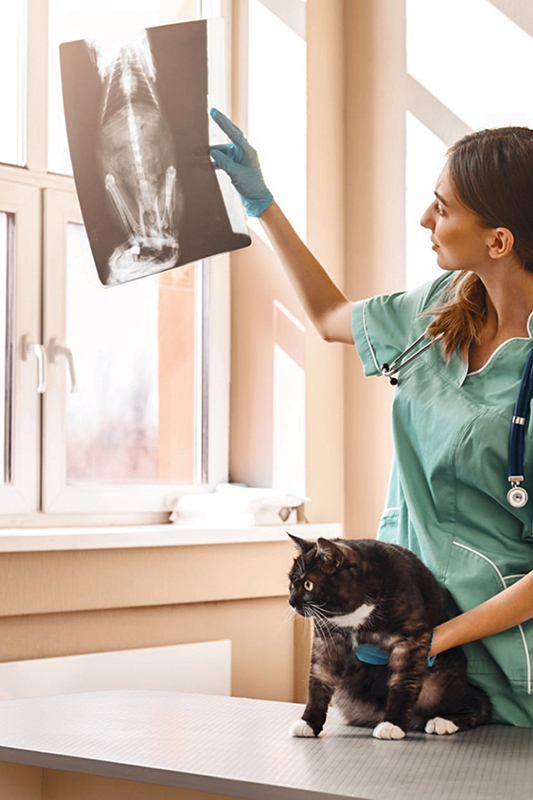By Kellie Tickner, Orchard Hills Veterinary Hospital Administrator
WHEN your pet isn’t acting quite like themselves — whether they’re unwell or simply showing subtle changes — your veterinarian’s priority is to uncover the cause quickly and with confidence. Because our furry family members can’t explain what they’re feeling, diagnostic tests like bloodwork, X-rays, and ultrasound become essential in giving us answers.
These tests can sometimes feel like an added expense, but they are powerful tools that guide your vet in making informed decisions, identifying potential problems early, and ensuring your pet receives the safest and most effective treatment. In many ways, diagnostics speak on behalf of your pet when they can’t.
Blood tests offer valuable insight into your pet’s internal health. They help evaluate organ function, hydration status, blood cell levels, and can reveal signs of inflammation or infection. Subtle shifts in kidney or liver values may signal the early stages of disease — long before physical symptoms appear. Regular bloodwork is especially important for ageing pets or those on long-term medications, helping vets catch changes early and adjust treatment if needed.
X-rays (radiographs) give veterinarians the ability to look inside your pet’s body without invasive procedures. They’re particularly useful for identifying broken bones, arthritis, tumours, swallowed objects, bladder stones, or changes in the lungs and heart. A dog with a chronic cough, for example, might have normal blood tests — yet an X-ray could reveal an enlarged heart or a mass affecting their breathing. Radiographs often provide the crucial piece of information needed to make a diagnosis.
Ultrasound goes a step further by allowing vets to see organs in real time. This detailed view is ideal for examining the liver, kidneys, bladder, and heart, and can detect fluid, masses, or other abnormalities. Ultrasound is gentle, non-invasive, and often requires no sedation, making it a comfortable option for many pets. It also assists vets in taking precise samples for laboratory testing when needed.
Sometimes, your vet may suggest referral to a specialist hospital, such as SASH, for more advanced imaging, such as a CT scan or MRI. These sophisticated tools produce highly detailed images that are invaluable when investigating complex or hard-to-diagnose conditions.
Veterinarians recommend diagnostic tests thoughtfully and with purpose. Each test is chosen based on your pet’s symptoms, physical exam findings, and medical history. Often, several tests are used together to form a complete picture — much like assembling pieces of a puzzle.
In the end, diagnostics don’t just confirm illness; they reduce uncertainty, prevent unnecessary treatments, and allow your vet to tailor the best care for your pet. Understanding what’s happening inside your pet’s body can make an enormous difference to their recovery and long-term health.
For more information about diagnostic testing, speak with the team at Orchard Hills Veterinary Hospital on 02 4736 2027.






